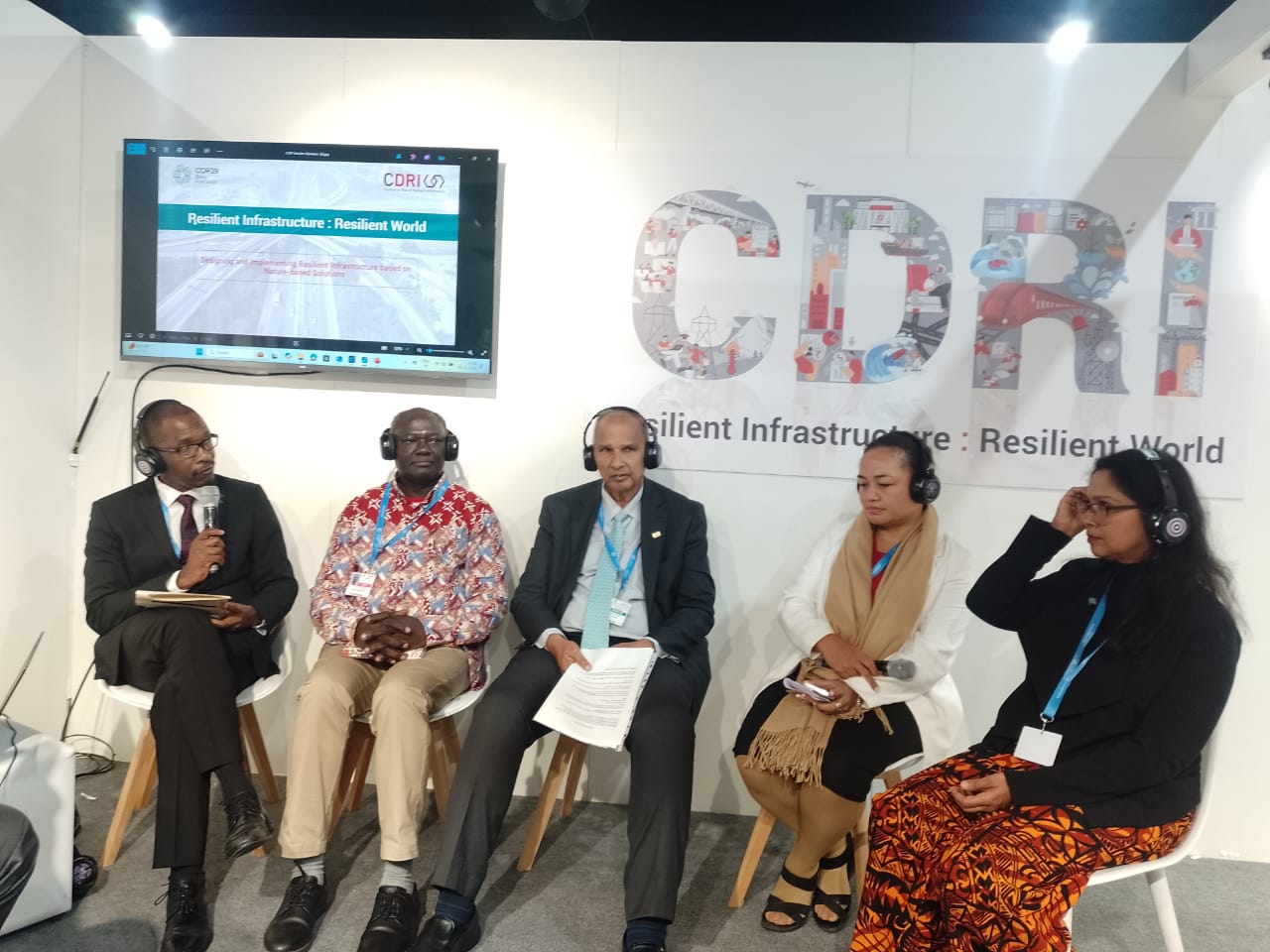Nature-based solutions have huge potential for climate change mitigation and adaptation, especially for the rural communities of the Caribbean and small island states. This was highlighted by experts at an event at COP29 organized by the Commonwealth of Nations, to which the Inter-American Institute for Cooperation on Agriculture (IICA) was invited for its experience in projects aimed at improving the resiliency of agrifood systems.

Baku, Azerbaijan, 21 November 2024 (IICA) – Nature-based solutions have huge potential for climate change mitigation and adaptation, especially for rural communities in the Caribbean and other small island states.
Thus affirmed experts at an event organized at COP29 by the Commonwealth of Nations, formerly the British Commonwealth of Nations, to which they invited the Inter-American Institute for Cooperation on Agriculture (IICA) for its work on projects that favor the resiliency of agrifood systems.
The hemispheric organization has played a leading role in the United Nations Climate Change Conference (COP29), which is being held in the city of Baku, Azerbaijan, with the attendance of 65,000 accredited individuals from almost 200 countries. It runs until Friday, 22 November.
The panel, which discussed the design and implementation of nature-based infrastructure solutions, was held at the pavilion of the Coalition for Disaster Resilient Infrastructure (CDRI), a partnership of national governments, UN agencies, multilateral finance institutions, the private sector and academic institutions, for the purpose of promoting works that foster adaptation to the higher frequency and intensity of extreme weather events.
Muhammad Ibrahim, Director of Technical Cooperation at IICA, was one of the panelists, alongside Mxolisi Sibanda, Climate Change Advisor with the Commonwealth Secretariat; Deepa Pullanikkatil, Climate Finance Advisor for Fiji; Leaba Gaunavinaka, Adaptation Specialist with Fiji’s Ministry of Environment and Climate Change; and Othniel Yila, Climate Finance Advisor for Uganda.
Vulnerability of island states
The Commonwealth is a voluntary association of 56 nations from around the world that share historic ties with the United Kingdom. Members from the Caribbean include Antigua and Barbuda, Bahamas, Barbados, Belize, Dominica, Grenada, Guyana, Jamaica, St. Lucia, St. Kitts and Nevis, St. Vincent and the Grenadines, and Trinidad and Tobago. Canada is also a member of the Commonwealth.
During the discussion, panelists affirmed that as climate change accelerates, nature offers a powerful means of adaptation and mitigation, particularly in nations severely impacted by extreme events, such as the small island states and developing countries of the Commonwealth.
The dialogue showcased the results of one of the first nature-based projects in Fiji, a Pacific island nation highly vulnerable to climate change, and shed light on design issues, collaboration between different ministries and international agencies and the importance of public policy.
Ibrahim highlighted that the lessons learned in other regions of the globe can be applied to the Caribbean, one of the most vulnerable areas to climate change.
“IICA has been working tirelessly in the countries of the Caribbean on nature-based solutions to build resilience. We know that the connection between landscapes and green infrastructure can be part of the solution. We are also investigating which are the best species to use, because often there is little information and we still have a long way to go to fully understand threats and resistances”, expressed Ibrahim.
IICA’s Director of Technical Cooperation underscored the importance of mangroves in protecting the costal systems of the Caribbean islands and in absorbing carbon from the atmosphere.
“We strive to improve the income of communities, which often depends on fishing in the Caribbean. In terms of agriculture systems, we collaborate to improve soil conservation practices and increase productivity, in addition to providing digital tools so that producers have access to better information”, he explained.
Ibrahim further commented that, at the national level, IICA is involved in the discussion on the Nationally Determined Contributions (NDCs) that reflect each country’s climate commitments to highlight the contribution of good practices such as no-till farming that will ensure agriculture is part of the solution.
More information:
Institutional Communication Division.
comunicacion.institucional@iica.int











